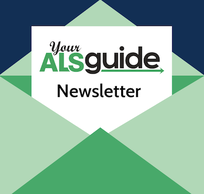|
ALS is a neurodegenerative disease that weakens voluntary muscles throughout the body. For the vast majority of people, ALS symptoms first appear in one of the limbs or in the muscles that control speaking and swallowing. Just a small percentage of people notice respiratory symptoms first.
|
|
|
Yet as ALS progresses, it will eventually affect the respiratory system. When ALS weakens the diaphragm (your primary breathing muscle), it becomes harder to fully inhale and exhale. This can lead to common ALS respiratory symptoms such as:
|
|
|
Whether or not you are experiencing any respiratory symptoms, it is important to attend an ALS clinic and have your breathing measured regularly. Oftentimes, breathing tests will detect a decline in breathing function before people living with ALS notice any symptoms. Getting respiratory support early can help you sleep better, have more energy, be more comfortable, live longer, and have a better quality of life.
|
|



